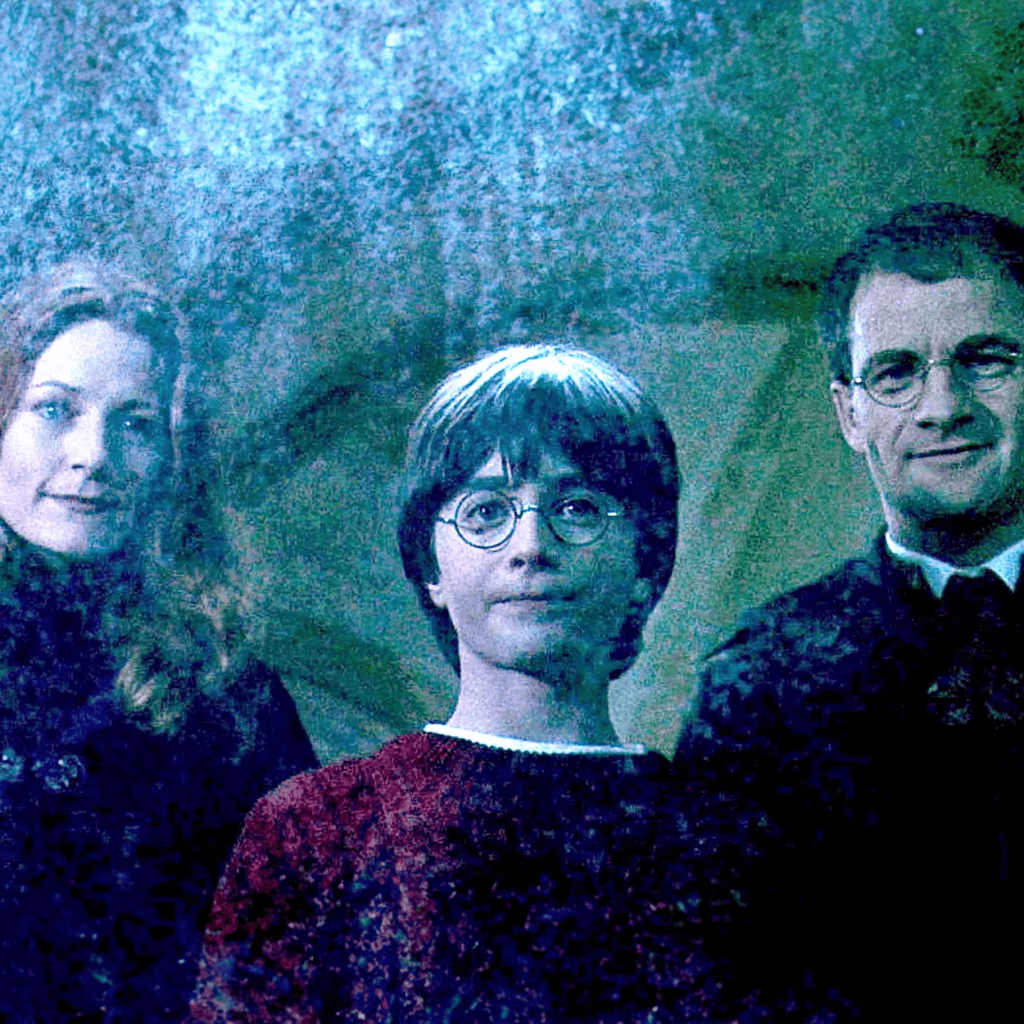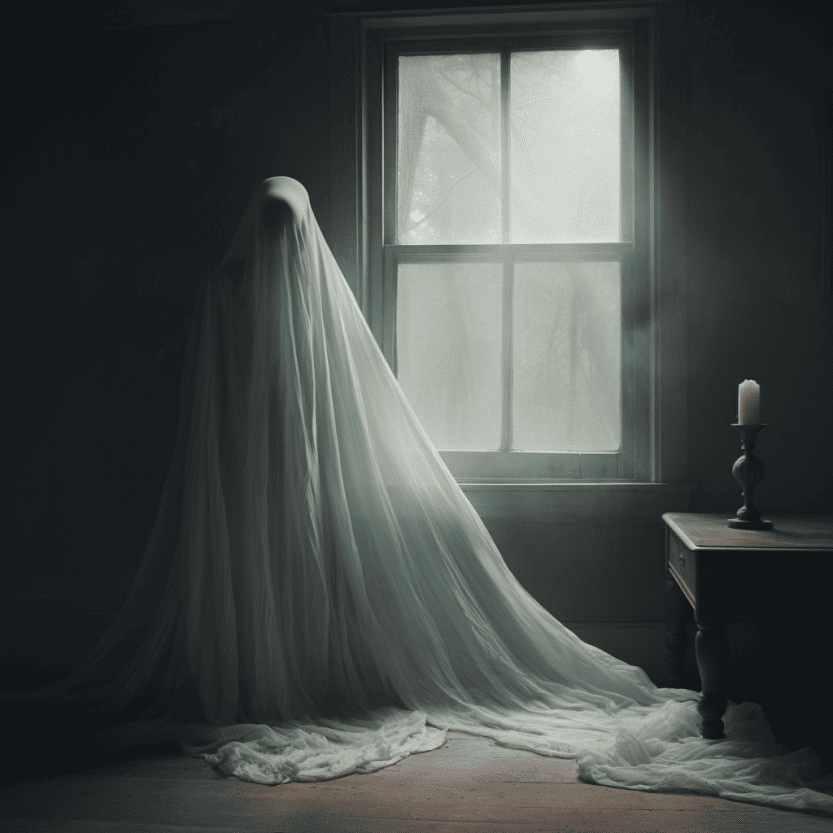Dreams are a fascinating realm of the human psyche, often serving as a window into our subconscious. When you dream of seeing a dead person alive, it can be both startling and confusing.
Dreaming of a dead person being alive often reflects unresolved emotions, desires for closure, or subconscious reflections on life, death, and memories.

You might wonder, "What does this mean? Why am I having this dream?" This article aims to shed light on this particular dream theme and help you navigate its potential meanings.
Reasons For Dreaming Of Someone Dead Being Alive
If you want a detailed explanation of your dream's meaning, fill out more information in the area below for an advanced report using our AI dream interpreting software:
With this tool, we aim to help you understand those messages. By using this tool, you accept the terms and conditions and privacy policy. This is not a replacement for therapy or medical intervention, but instead a helpful tool for self-reflection.
1) Repressed Emotions
Dreams often serve as a conduit for feelings or emotions that we haven't fully processed or confronted in our waking life. When you dream of a deceased individual, it might be a manifestation of repressed feelings such as guilt, sadness, or even joy. These emotions could be tied to memories or experiences you shared with the person.
Dreams often act as a safety valve, allowing individuals to process emotions they might not be consciously addressing. Dreaming of a deceased individual can be a manifestation of these suppressed feelings. For instance, unresolved conflicts or guilt can manifest in dreams as the mind's way of seeking resolution or understanding.
Example: Imagine you had a disagreement with a friend, and before you could reconcile, they tragically passed away. The weight of that unresolved conflict might linger in your subconscious, leading to dreams where you see them alive. It's your mind's way of grappling with the unresolved emotions and seeking resolution.
2) Desire for Closure
The human psyche often yearns for closure, especially when it comes to relationships and experiences that had a profound impact on us. If you never had the opportunity to say a final goodbye or express your feelings to someone before they passed away, your subconscious might create a scenario in your dreams where you can find that closure.
Example: If a loved one passed away suddenly, and you couldn't attend their funeral, you might dream of them alive, giving you a chance to bid them a heartfelt farewell.
3) Fear of Death
The concept of mortality is one that many grapple with, especially during the formative years of high school. Dreaming of a deceased individual can sometimes be a reflection of your own fears or anxieties about death, the afterlife, and the unknown. It's a way for your mind to process these fears in a safe environment.
Existential anxiety, a concept well-discussed in psychology, revolves around the fear of death and the unknown. Dreaming of a deceased individual can be a reflection of this anxiety, especially if the dreamer has recently been exposed to discussions or experiences related to mortality.
Example: If you've recently lost someone close or been exposed to discussions about death, these anxieties might manifest in your dreams as seeing a deceased person alive.
4) Reminders of Mortality
Such dreams can serve as poignant reminders of the transient nature of life. Seeing someone who has passed away in your dream might be your subconscious nudging you to value life, cherish the moments you have, and not take things for granted.
Example: If you've been engrossed in the hustle and bustle of life, neglecting personal relationships or health, a dream like this might be a wake-up call to reprioritize.
5) Continued Bond
Death might end a life, but the bonds and memories often persist. Dreaming of a deceased loved one can signify that the relationship you shared with them is still alive in your heart and mind. It's a testament to the enduring nature of human connections.
Attachment theory in psychology emphasizes the enduring nature of bonds formed with significant individuals. Dreaming of a deceased loved one can be a testament to these unbroken bonds, suggesting that relationships continue in the psychological realm even after physical separation.
Example: If you recently reminisced about a late family member or remembered a lesson they taught you, they might appear in your dream, reinforcing the idea that they're still watching over you.
6) Unfinished Business
Our subconscious is incredibly adept at holding onto memories, especially those tied to strong emotions or unresolved matters. If there's something unsaid or undone between you and the deceased, it might manifest in your dreams.
Psychologists often discuss the concept of "unfinished business" – unresolved emotions or commitments that can linger in the subconscious. Dreams can be a medium through which these unresolved matters surface, urging the dreamer to address them.
Example: Suppose you borrowed a cherished book from a friend, and they passed away before you could return it. Dreaming of them might be your subconscious urging you to find a way to honor that unfulfilled promise.
7) Personal Growth
At times, the deceased in your dream might not directly relate to the person but instead symbolize a part of you or a phase in your life that has come to an end. It's indicative of personal growth, transformation, or moving on from past experiences.
Example: Dreaming of a childhood friend who passed away during your younger years might symbolize your transition from childhood to the challenges and experiences of high school, indicating that you've grown and evolved.
8) Symbol of Guidance
The deceased person might appear in your dreams as a guiding figure, offering advice or direction during a tumultuous phase in your life. This is especially common if the individual was someone you looked up to or sought advice from when they were alive.
Example: If you're facing a significant life decision and dream of a deceased mentor or elder, it might symbolize your subconscious seeking their guidance or recalling wisdom they once shared.
9) Yearning for the Past
Such dreams can indicate a deep-seated desire to return to a time when the deceased was still alive, especially if it was a period of happiness, security, or simplicity.
Nostalgia, a concept explored in psychology, is a longing for the past. Dreaming of a deceased loved one can be a manifestation of this nostalgia, especially during times of stress or change, reflecting a desire for comfort and familiarity.
Example: If you're going through a challenging phase, dreaming of a deceased loved one might represent a longing for simpler times or the comfort they provided.
10) Anticipation of Reunion
For those who believe in an afterlife, dreaming of a deceased person might symbolize the hope or anticipation of being reunited with them in the afterlife.
For those with spiritual beliefs, the anticipation of an afterlife reunion can be a source of comfort. Psychologists recognize that such beliefs can play a crucial role in coping with grief and loss, and dreams might reflect this hope and comfort.
Example: If you've been pondering life after death, such a dream might be a comforting reminder of a potential reunion with loved ones who've passed on.
11) Processing Recent Loss
If the death is recent, dreaming of the person being alive might be a part of the grieving process, where the mind is still coming to terms with the loss and is momentarily reverting to a state of denial or wishful thinking.
Grief counseling, a specialized field in psychology, acknowledges that the grieving process is multifaceted. In the immediate aftermath of a loss, denial is a common stage. Dreaming of the deceased as if they were still alive might be a part of this grieving process, reflecting the mind's gradual journey towards acceptance.
Example: In the weeks or months following a loved one's passing, it's not uncommon to dream of them as if they were still alive, reflecting the mind's way of slowly processing the reality of their absence.
Who Is The Dead Person To You?

When you dream of a deceased family member, it often touches upon deep-rooted familial ties and values. Whether it's a parent, sibling, or extended family, such dreams might reflect your feelings about family dynamics or unresolved familial issues. For instance, dreaming of a late parent could indicate your longing for their guidance, protection, or approval. It might also be a manifestation of inherited family values or traditions that you're currently grappling with.
Dreams featuring a deceased friend delve into the realm of personal bonds and shared experiences. Such dreams might evoke feelings of loss, nostalgia, or the desire to revisit shared memories. If a close friend who has passed away appears in your dream, it could be a reflection of a particular experience you both shared or perhaps an unresolved issue between you two.
Sometimes, the deceased individual might just be an acquaintance or distant relation. Dreaming of someone you weren't particularly close to can symbolize aspects of yourself that you associate with that person. For example, dreaming of a classmate you weren't close to might not necessarily be about the individual but more about the time or phase they represent in your life.
On occasion, you might dream of a deceased celebrity or public figure. Such dreams can be tied to the qualities or characteristics you admired in them. For instance, if you dream of a late artist you revered, it might symbolize your aspirations or feelings about their societal impact.
Childhood figures, be they friends from your early years, teachers, or even fictional characters from stories, often represent innocence or lessons learned during your formative years. Dreaming of a childhood teacher, for example, might bring to the fore feelings about lessons they imparted, either academic or life-related.
Lastly, there are times when the deceased person in the dream is an unknown individual. Such dreams can be intriguing, symbolizing unknown aspects of yourself or general feelings about death and the afterlife. An unknown deceased person in your dream might represent a part of yourself you're unfamiliar with or perhaps general anxieties about mortality.
Dead People In Dreams In Many Cultures
Dreams, especially those involving deceased individuals, have been interpreted in myriad ways across different cultures, each offering a unique perspective. In Chinese culture, dreams of the deceased are often seen as a sign that the spirit of the departed is visiting or conveying a message. It's common to offer prayers or perform rituals after such dreams, especially if the deceased appears distressed, indicating a need to address unresolved issues or perform specific appeasing rituals.
In many African cultures, where ancestors play a pivotal role in spiritual beliefs, dreaming of a deceased loved one might be perceived as a visitation or message from the ancestral realm. Such dreams often lead to consultations with spiritual leaders or elders to decipher their meanings.
For Native American tribes, dreams serve as a bridge between the physical and spiritual worlds. When one dreams of deceased individuals, it's often interpreted as guidance, protection, or a message from the spirit, emphasizing the interconnectedness of life, death, and the spiritual realm.
In Hindu culture, where the soul is believed to undergo cycles of birth, death, and rebirth, dreaming of the deceased can indicate that the soul has found peace or has embarked on its next journey. Such dreams might also hint at unresolved karma or bonds between the dreamer and the departed.
From an Islamic perspective, dreams hold profound significance, with some being seen as direct messages from the divine. Dreaming of the deceased serves as a reminder of the afterlife and the fleeting nature of worldly existence. It's also believed that the soul of the deceased might appear in dreams seeking prayers or conveying important messages.
In many Western cultures, influenced by psychoanalytic thought, dreams of the deceased are often interpreted through a psychological lens. They might be reflections of the grieving process, manifestations of unresolved emotions, or the subconscious mind's attempt at seeking closure.
Why Would Someone Come Back To Life In My Dream?

Dreams, with their intricate tapestry of emotions, symbols, and narratives, often serve as a mirror to our subconscious. One particularly poignant and frequently reported dream theme is that of a deceased individual coming back to life. Such dreams, while deeply emotional, can be rich in meaning and insight.
The reasons behind these dreams are multifaceted. For many, it's a manifestation of the grieving process. Losing a loved one is a profound, life-altering experience, and the human psyche has its own ways of navigating the tumultuous waters of grief. One of these coping mechanisms can be the stage of denial, where the reality of the loss is too overwhelming to accept. In this context, dreaming of the deceased returning to life might be the subconscious trying to provide temporary solace or reprieve from the pain.
Not all such dreams are rooted in denial or grief. For some individuals, especially those who had unresolved issues with the deceased, these dreams can be a subconscious attempt to seek closure. It might be the mind's way of recreating scenarios where unresolved matters are addressed, be it an unsaid apology, a missed goodbye, or a lingering question.
These dreams can also be reflective of an individual's beliefs and feelings about the afterlife. For those who believe in life after death, such dreams might symbolize hope—a hope of reuniting with loved ones in another realm or dimension. It's a comforting thought, one that underscores the enduring bonds of love and connection, transcending the boundaries of life and death.
So, what should one do upon waking from such a dream? First and foremost, it's essential to reflect. Dive deep into the emotions the dream evoked and try to discern any underlying messages or themes. Journaling can be an invaluable tool in this process. By jotting down the dream and the associated feelings, patterns might emerge over time, offering deeper insights.
Open dialogue is another therapeutic approach. Sharing the dream with a trusted friend, family member, or therapist can provide fresh perspectives and interpretations. Sometimes, just the act of sharing can be cathartic, lightening the emotional load.
Lastly, for those who find these dreams recurrent or distressing, seeking professional guidance might be beneficial. Therapists or counselors, especially those specializing in grief counseling, can offer coping strategies, insights, and a safe space to process these dreams.
In the vast realm of dream interpretation, it's crucial to remember that each dream is as unique as the dreamer. While general interpretations can offer a framework, the true meaning often lies in the personal experiences, emotions, and beliefs of the individual. Embracing dreams, even the unsettling ones, can pave the way for personal growth, understanding, and healing.
Practical Applications

Here are some practical things you can do to help resolve any negative feelings coming from your dream:
- Journaling: Write down your dreams and emotions. It can help you process feelings and find patterns.
- Meditation: Use meditation to explore your feelings and find inner peace.
- Open Conversations: Talk to someone you trust about your dream. Sharing can provide a fresh perspective.
- Artistic Expression: Paint, draw, or write about your dream. Art can be therapeutic.
- Seek Symbolism: Look for symbols in your dream. They can offer insights into your subconscious.
- Honor Their Memory: Do something in memory of the deceased, like planting a tree or donating to a cause they loved.
- Revisit Memories: Look at old photos or revisit places you went to with the deceased. It can help with closure.
- Acceptance: Understand that dreams are a natural part of the grieving process and accept them without fear.
- Seek Professional Help: If the dreams are distressing or recurrent, consider seeking help from a therapist or counselor.
Biblical Meaning and Interpretation
In the Bible, dreams often serve as a medium through which God communicates with individuals. From Joseph's prophetic dreams in the Old Testament to the visions of the apostles in the New Testament, dreams have been seen as divine messages or warnings. When interpreting dreams of the deceased from a biblical standpoint, it's essential to approach them with a sense of reverence and discernment.
Seeing a deceased person alive in a dream might be interpreted as a reminder of the resurrection, a core tenet of Christian belief. Jesus Christ's resurrection from the dead is a testament to the promise of eternal life for believers. Such dreams could serve as a comforting reminder of this promise, emphasizing the transient nature of earthly life and the eternal life that awaits in the hereafter.
These dreams might also be seen as a call to reflection and repentance. In the Bible, the dead coming back to life can symbolize spiritual awakening or renewal. If a believer dreams of a deceased loved one, it might be a nudge from the Holy Spirit to reevaluate their spiritual journey, mend broken relationships, or address unresolved issues.
However, it's also crucial to exercise caution. The Bible warns against seeking or communicating with the dead, as seen in passages like Deuteronomy 18:10-12. From a biblical standpoint, attempting to communicate with the deceased can divert one's focus from God and lead them astray. Therefore, while the dream might hold significance, it's essential to approach its interpretation with prayer, seeking God's wisdom and guidance.
While the Bible offers insights into dream interpretation, it's essential to approach such dreams with a balanced perspective, grounded in faith and scripture. Seeking counsel from spiritual leaders or insightful psychologists can provide further clarity and understanding.
Frequently Asked Questions
How common is it to dream of deceased loved ones?
It's quite common for individuals to dream of deceased loved ones, especially during the grieving process. Such dreams can be a way for the subconscious mind to process emotions, seek closure, or simply reminisce about cherished memories.
Do these dreams have a predictive or spiritual significance?
Interpretations of dreams vary widely based on cultural, religious, and personal beliefs. While some might view these dreams as spiritual messages or signs, others see them as reflections of the subconscious mind. It's essential to find an interpretation that resonates with your personal beliefs and experiences.
Why do I feel so emotional after having these dreams?
Dreams involving deceased loved ones can evoke strong emotions because they touch upon themes of loss, love, and memories. It's natural to feel a range of emotions, from sadness and longing to comfort and warmth, depending on the dream's context.
Can I influence or control these dreams?
While it's challenging to control dreams entirely, practices like lucid dreaming can offer some level of influence over dream content. Additionally, mindfulness and meditation before sleep can set a positive and calming tone, potentially influencing dream themes.
I've never met this deceased person in real life. Why am I dreaming of them?
Dreaming of someone you've never met, like a deceased ancestor or a historical figure, can symbolize qualities, lessons, or themes associated with that individual. It might not be about the person per se but more about what they represent in your subconscious.
Is it normal to dream of the deceased person as if they're still alive?
Yes, it's quite normal. Such dreams can be a manifestation of the mind's desire for more time with the loved one, a reflection of memories when they were alive, or a way to process the reality of their absence.
Should I seek professional help if these dreams become recurrent or distressing?
If dreams of deceased individuals become recurrent, particularly distressing, or interfere with your daily life, it might be beneficial to seek guidance from a therapist or counselor. They can offer coping strategies, insights, and a safe space to process these dreams.
Disclaimer
This article provides insights based on general psychological understanding. Individual experiences can vary widely. If you find yourself deeply affected by your dreams or if they cause distress, it's essential to seek guidance from a licensed psychologist or counselor.
Conclusion
Dreams of seeing a dead person alive can be jarring, but they're a natural part of our psyche's way of processing emotions, memories, and fears. By understanding their potential meanings and applying practical insights, you can use these dreams as tools for self-betterment and emotional growth.
Remember, dreams are personal, and their interpretations can vary based on individual experiences. It's essential to reflect on them in a way that resonates with you.
